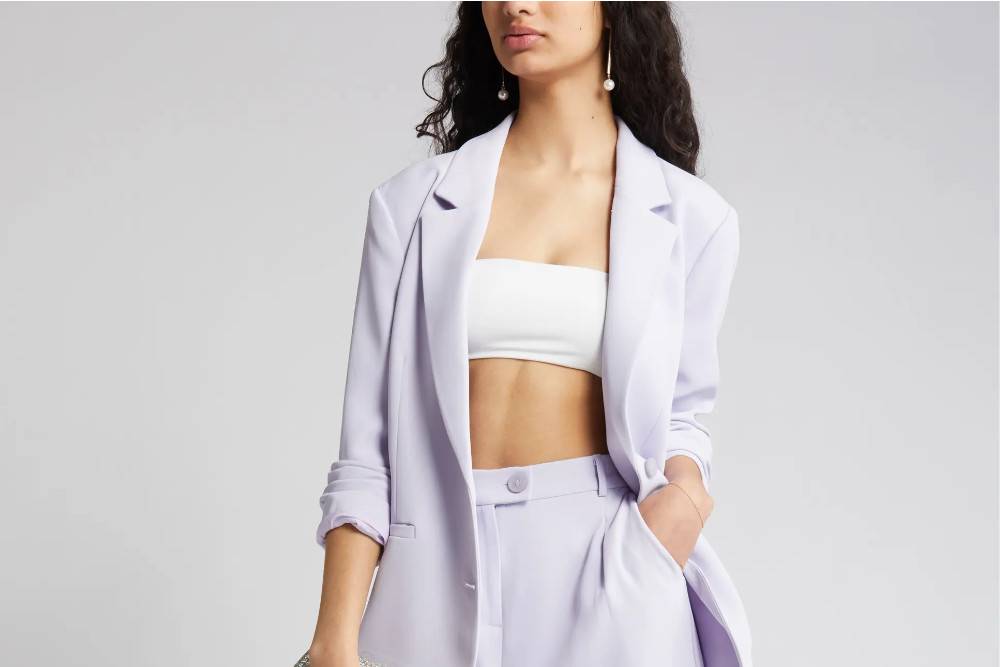
Nordstrom is an American fashion retailer founded in 1901 in Seattle, Washington, by John W. Nordstrom and Carl F. Wallin. The multinational clothing-retail company creates casual fashion for men, women, and children.
Nordstrom sells different clothing labels at various price points and designs a range of clothing, accessories, shoes, swimwear, and homeware under its own brands called Zella, Halogen, Caslon, Open Edit, Treasure & Bond, BP., Tucker + Tate, and more.
Nordstrom operates more than 350 stores in the United States and Canada at Nordstrom, Nordstrom Local, and Nordstrom Rack locations. It also sells digitally through its Nordstrom and Rack apps and websites.
Nordstrom is committed to leaving the world better than we found it. It believes it has a role in building a more sustainable future. It knows it's critical to protect the environment, give back to the communities, and create safe and fair workplaces for the people who make its products.
The clothing retailer offers a sustainable collection made from organic or recycled materials called Sustainable Style, focusing on products with sustainability attributes rather than full brands.
Panaprium is independent and reader supported. If you buy something through our link, we may earn a commission. If you can, please support us on a monthly basis. It takes less than a minute to set up, and you will be making a big impact every single month. Thank you!
Sustainability Rating: 4/10
Rating FAQ
Category: Clothing, accessories, shoes, bags, jewelry
For: Women, men, children
Type: Basics, denim, knitwear, activewear, underwear, loungewear, swimwear, outerwear, nightwear, sneakers, flats, sandals, heels, boots
Style: Casual
Quality: Medium
Prices: $$
Sizes: 2XS-4XL, 0-26 (US), 2-28 (UK), 32-58 (EU), 2-28 (AU), plus
Fabrics: Cotton, linen, hemp, ramie, jute, lyocell, modal, viscose, cupro, acetate, polyester, nylon, spandex, polyethylene, polypropylene, acrylic, neoprene, polyurethane, rubber, leather, wool, silk, down
100% Organic: No
100% Vegan: No
Ethical & Fair: No
Recycling: Yes
Producing countries: Bangladesh, Brazil, Cambodia, China, Colombia, Dominican Republic, El Salvador, Guatemala, Honduras, India, Indonesia, Italy, Mexico, Peru, Philippines, United States, South Korea, Sri Lanka, Thailand, Turkey, Vietnam
Certifications: GOTS, OCS, GRS, RCS, RWS, RDS, FSC, Oeko-Tex, BCI, Bluesign
Sustainability Practices
Nordstrom takes wide-ranging measures to protect biodiversity, reduce its consumption of water, energy, and other resources, avoid waste, and combat climate change.
It wants to be better and more efficient by looking at every aspect of its value chain to ensure the healthy functioning of our planet. However, the majority of its business remains detrimental to the environment.
Nordstrom is part of major international initiatives to promote sustainable raw materials and fibers. It's raising awareness of textile impacts and encouraging the use of more sustainable materials.
Nordstrom only uses a tiny proportion of organic materials such as organic cotton and hemp or recycled materials such as recycled cotton, recycled polyester, and regenerated nylon.
Only very few of its collections are dedicated to sustainable fashion. Most of the fabrics it uses are either natural without relevant certifications, such as regular cotton or linen, or synthetic petroleum-based fibers such as polyester, nylon, acrylic, and more.
Nordstrom also uses a small proportion of semi-synthetic fibers or regenerated cellulosic fabrics such as Tencel lyocell, modal, cupro, and viscose.
Tencel is an eco-friendly fiber made with wood pulp from certified sustainable forests. But only a tiny proportion of the materials used by Nordstrom are environmentally friendly and sustainable.
Nordstrom publishes a list of all its manufacturers but not its processing facilities on its corporate website. It aims to support labor and human rights throughout its supply chain.
The 2022 Fashion Transparency Index gave Nordstrom a score of only 17% based on how much the group discloses about its social and environmental policies, practices, and impacts.
Nordstrom manufactures its clothes in Turkey and many other East Asian countries, where human rights and labor law violations happen every day.
The American clothing retailer doesn't show any labor certification standard that would ensure good working conditions, decent living wages, health, safety, and other crucial rights for workers in its supply chain.
Nordstrom has a code of conduct that applies to all its suppliers and subcontractors based on the regulations set by the International Labor Organization (ILO).
Nordstrom assesses compliance with its Code of Conduct by informal visits or audits with or without notice. It works with organizations to support its responsible business practices.
Nordstrom doesn't use exotic animal skin, hair, fur, or angora. But it uses leather, wool, silk, and down feathers to manufacture many of its clothing pieces.
These animal-derived materials are cruel and unethical. They also harm the environment by producing greenhouse gases and waste. More sustainable alternatives exist.
Sustainability Goals
Nordstrom has committed to increasing the number of sustainably sourced and made products in its assortment. It aims to ensure that 15% of its offering is made up of more sustainable products by 2025.
Nordstrom will make products in more socially and environmentally responsible factories, giving back to causes with every purchase, choosing minimal and recyclable packaging, or using sustainably sourced ingredients.
Nordstrom plans to use sustainably sourced raw materials for 50% of Nordstrom Made products that are made primarily of cotton, polyester, or cellulosic fibers by 2025.
Buy Here
Discover Nordstrom's sustainable collections at Nordstrom.com.
Reviews And Experiences With Nordstrom
Have you had (good) experiences with shopping at or the products of Nordstrom? Then leave us your rating below.
What We're Up Against
Multinational corporations overproducing cheap products in the poorest countries.
Huge factories with sweatshop-like conditions underpaying workers.
Media conglomerates promoting unethical, unsustainable products.
Bad actors encouraging overconsumption through oblivious behavior.
- - - -
Thankfully, we've got our supporters, including you.
Panaprium is funded by readers like you who want to join us in our mission to make the world entirely sustainable.
If you can, please support us on a monthly basis. It takes less than a minute to set up, and you will be making a big impact every single month. Thank you.






























0 comments